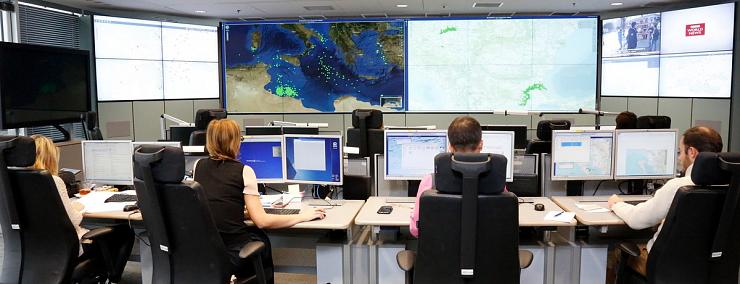[EN] below
Voici le refus de Laissez-passer européen de l’Etat Malien 29 dec. 2016 avec lequel deux migrants en provenance de France ont été renvoyés par le mème vol à l’aéroport international de Bamako.
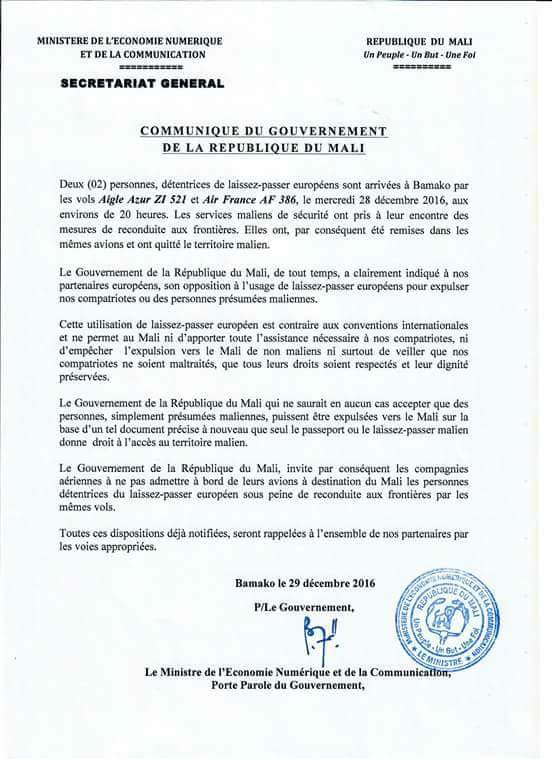
(en-dessous copie du Laissez-passer Européen)
Communiqué Association Malienne des Expulsés
L’utilisation du laissez-passer européen par certains pays européens constitue une violation de la Convention de Vienne
vendredi 6 janvier 2017
Le mercredi 28 décembre 2016 les services de sécurité maliennes (Police des Airs et des Frontières) ont procédé au refoulement de deux personnes arrivées au Mali le même jour par les vols Aigle Azur ZI 521 et Air France AF 386. Ces deux personnes supposées être des maliens étaient détentrices de laissez-passer européens comme document de voyage alors que ces documents n’ont aucune base juridique et légale.
L’utilisation du laissez-passer européen par certains pays européens constitue une violation de la Convention de Vienne du 24 avril 1963 sur les relations consulaires dans la mesure où ces migrants expulsés vers le Mali n’étaient pas accompagnés par des documents délivrés par les services consulaires de la République du Mali.
Pour rappel, le gouvernement du Mali à travers le Ministère des Affaires Etrangères, de l’Intégration Africaine et de la Coopération Internationale avait déjà mis en garde les autorités françaises contre l’utilisation des laissez-passer européens. Une note verbale a été émise dans ce sens le 27 juin 2015 et prévoyait le renvoi systématique par les mêmes vols des personnes expulsées au Mali et ne possédant pas de documents délivrés par le Consulat du Mali.
L’Association Malienne des Expulsés (AME) se réjouit et félicite le gouvernement de la République du Mali pour le refoulement vers la France des deux personnes expulsées au Mali. L’AME exhorte le gouvernement et l’encourage de continuer à œuvrer pour le respect des droits des migrants et pour une relation franche entre les deux Etats.
L’AME invite les Etats membres de l’Union Européenne à renoncer à l’utilisation des laissez-passer européens et le gouvernement Malien à mettre fin sans délais aux opérations d’identification de nos compatriotes en Europe.
Enfin, l’AME s’interroge sur le sort des migrants expulsés sur la base du laissez-passer européen et qui vivent actuellement au Mali.
Le Président
Ousmane DIARRA
L’Association Malienne des Expulsés et All Included sont membres de Afrique-Europe Interact
Afrique-Europe-Interact est un petit réseau, constitué début 2010, organisé au niveau transnational. Participent à ce réseau des activistes de base, venant pour la plupart du Mali, du Togo, de l’Allemagne, de l’Autriche et de la Hollande ; parmi eux, de nombreux réfugiés, migrants et expulsés organisés de façon autonome.
Observatoire de la Société Civile Ouest Africaine sur le Plan d’Action de la Valette: Déclaration de dix ONGs de dix pays de l’Afrique de l’Ouest
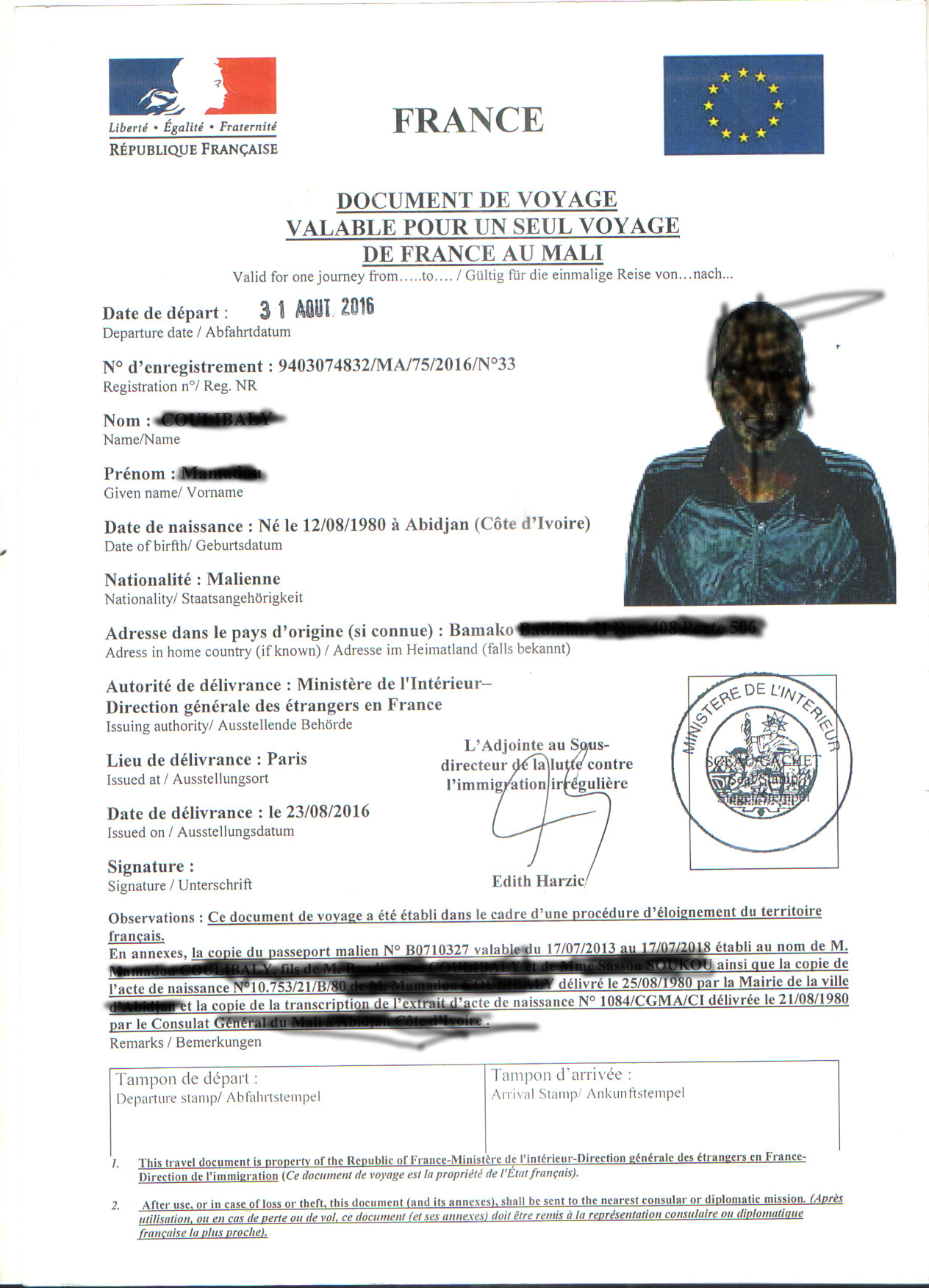
[EN]
Mali/EU: Two returnees sent back to France as Mali rejects EU laissez-passer document
On 29 December 2016, the Malian government produced a statement announcing its refusal to recognise the validity of the EU laissez-passer document used to return two of its citizens, who were sent back to France following their arrival in Bamako on 28 December 2016. The Malian authorities also invited air carriers to refrain from transporting its citizens on the basis of recognition of the validity of such documents, noting that they will be made to fly them back to Europe.
Statement by the Government of the Republic of Mali (29 December 2016)
Two (02) people, holders of European laissez-passer documents arrived in Bamako on Wednesday 28 December 2016 at around 8:00 p.m. on flights Aigle Azur ZI 521 and Air France AF 386. The Malian security services adopted measures to return them to the border. Consequently, they were placed on board of the same aeroplanes again and left the Malian territory.
For a long time, the Government of the Republic of Mali has clearly indicated to its European partners that it opposes the use of European laissez-passer documents to expel our compatriots or people who are presumed to be Malians.
This use of the European laissez-passer documents contravenes international conventions and does not enable Mali to lend the assistance which is required to our compatriots, nor to prevent the expulsion of non-Malians to Mali nor, especially, to ascertain that our compatriots are not mistreated, that all their rights are respected and their dignity is safeguarded.
In any case, the Government of the Republic of Mali could not accept that some people, who are merely presumed to be Malians, may be expelled to Mali on the basis of such a document, and clarifies again that only a passport or a Malian laissez-passer may provide a right of access to Malian territory.
Consequently, the Government of the Republic of Mali invites all air carriers not to allow people who are holders of European laissez-passer documents on board of their flights travelling to Mali, as they will returned to the border on the same flights.
All our partners will be reminded through the appropriate channels of all these provisions, about which they have already been notified.
Bamako, 29 December 2016
For the Government,
The Minister of Statistical Economy and Communications,
and Government Spokesman
Use of the European laissez-passer by certain European countries constitutes a violation of the Vienna Convention
Statement by the Association Malienne des Expulsés, 6 January 2017
On Wednesday 28 December 2016 the Malian security services (Air and Border Police) enacted the refoulement of two people who arrived in Mali on the same day in flights Aigle Azur ZI 521 and Air France AF 386. These two people who were presumed to be Malians were holders of European laissez-passer documents as travel documents although such documents do not have any legal and judicial basis.
The use of European laissez-passer documents by certain EU countries constitutes a violation of the Vienna Convention of 24 April 1963 on consular relations, insofar as these migrants expelled to Mali were not in possession of documents issued by the consular services of the Republic of Mali.
We recall that the Malian government, through the Ministry for Foreign Affairs, for African Integration and for International Cooperation, had already warned the French authorities against using European laissez-passer documents. A verbal note was issued to announce this on 27 june 2015, envisaging the systematic return using the same aeroplanes of people expelled to Mali without being in possession of documents produced by the Consulate of Mali.
The Association Malienne des Expulsés (AME, Malian Association of Expellees) welcomes this and congratulates the government of the Republic of Mali for these returns to France of the two people who were expelled to Mali. AME exhorts the government and encourages it to continue to act for the sake of respect for the rights of migrants and for a frank relationship between the two States.
AME invites the Member States of the European Union to give up on the use of of European laissez-passer documents and for the Malian government to immediately put an end to its operations to identify our compatriots in Europe.
Finally, AME is concerned about the fate of migrants who have been expelled on the basis of European laissez-passer documents and who currently live in Mali.
The President
Ousmane DIARRA
Translations by Statewatch
The original versions of both statements (in French) are available on the Dutch website All Included, which also includes a copy of the European laissez-passer document issued by the French authorities, at: http://www.allincluded.nl/posts/le-mali-appele-compagnies-aeriennes-barrer-acces-aux-personnes-avec-laissez-passer-europeen/
The website of the Association Malienne des Expulsés, http://www.expulsesmaliens.info/
and the 6 January 2017 statement,
L’utilisation du laissez-passer européen par certains pays européens constitue une violation de la Convention de Vienne: http://www.expulsesmaliens.info/L-utilisation-du-laissez-passer.html
L’Association Malienne des Expulsés and All Included are members of Afrique-Europe Interact
Afrique-Europe-Interact is a small, transnationally organised network that was founded in early 2010. It consists of grassroots activists mainly from Mali, Togo, Germany, Austria and the Netherlands – many of them self-organised refugees, migrants and people who were deported.
Déclaration de la Société Civile d’Afrique de l’Ouest sur le Plan d’action Valletta
Observatory of the West African Civil Society on the La Valletta Action Plan: Declaration of ten NGO’s from ten West-African countries
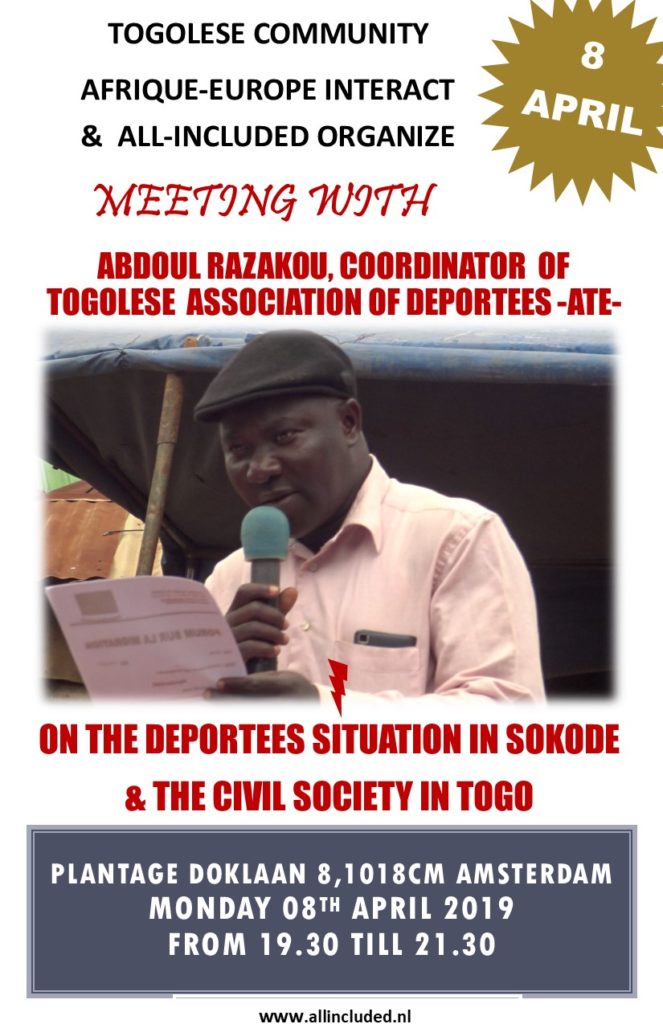
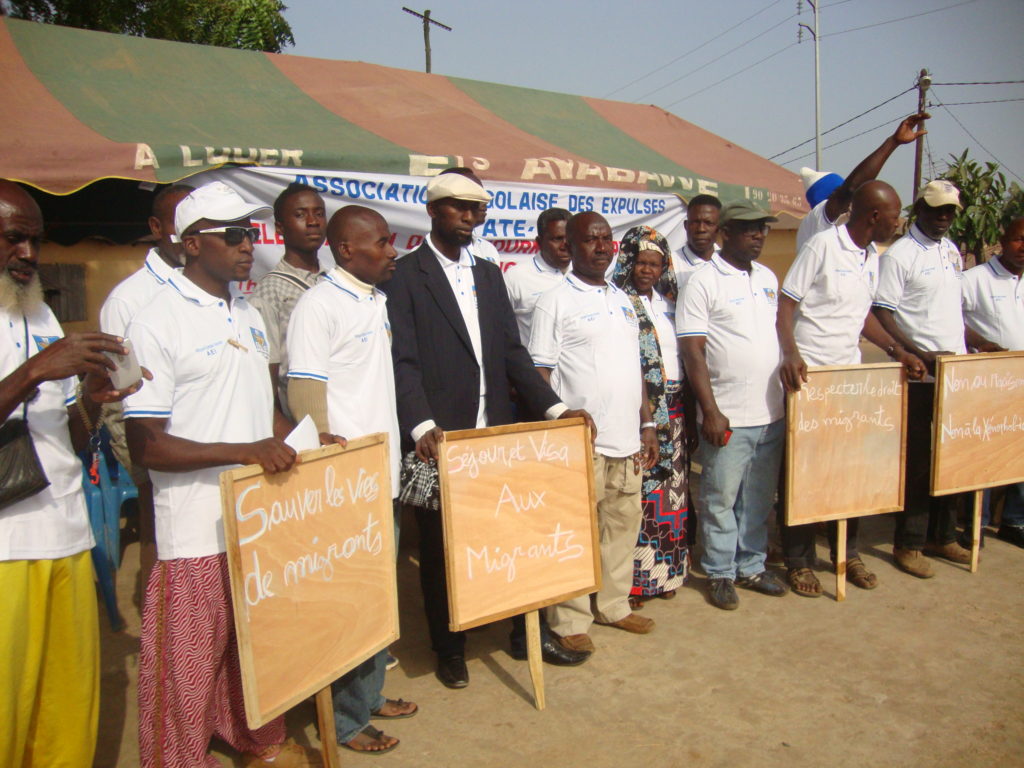
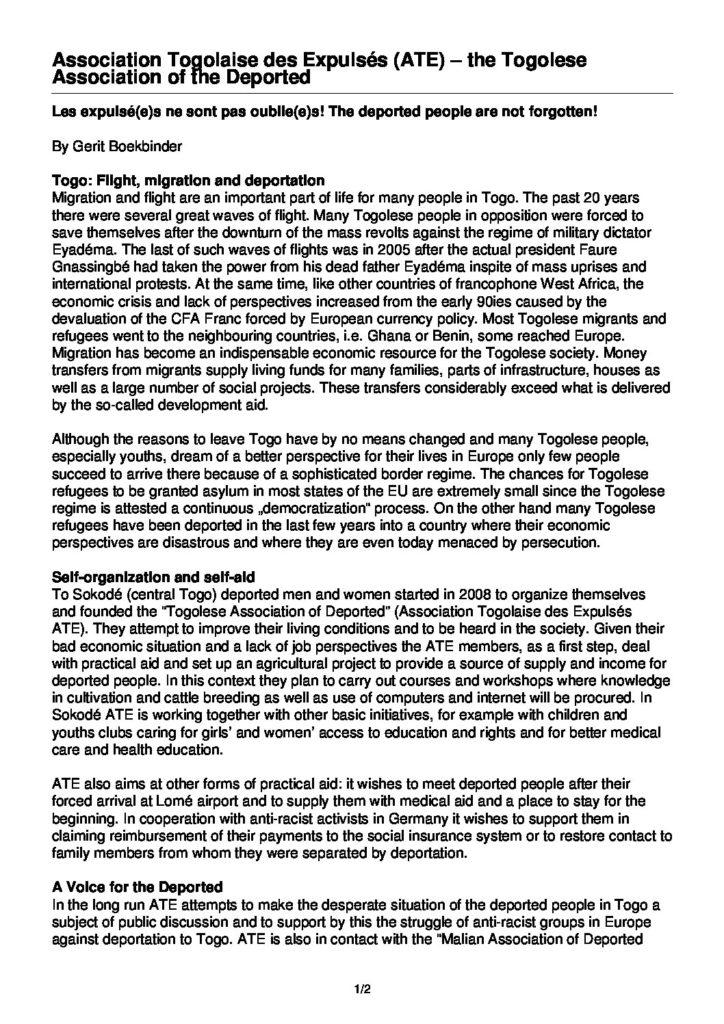

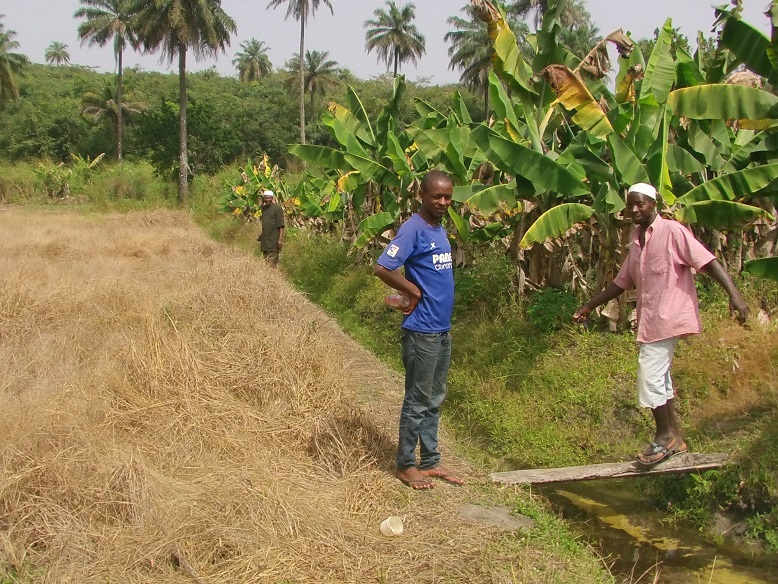


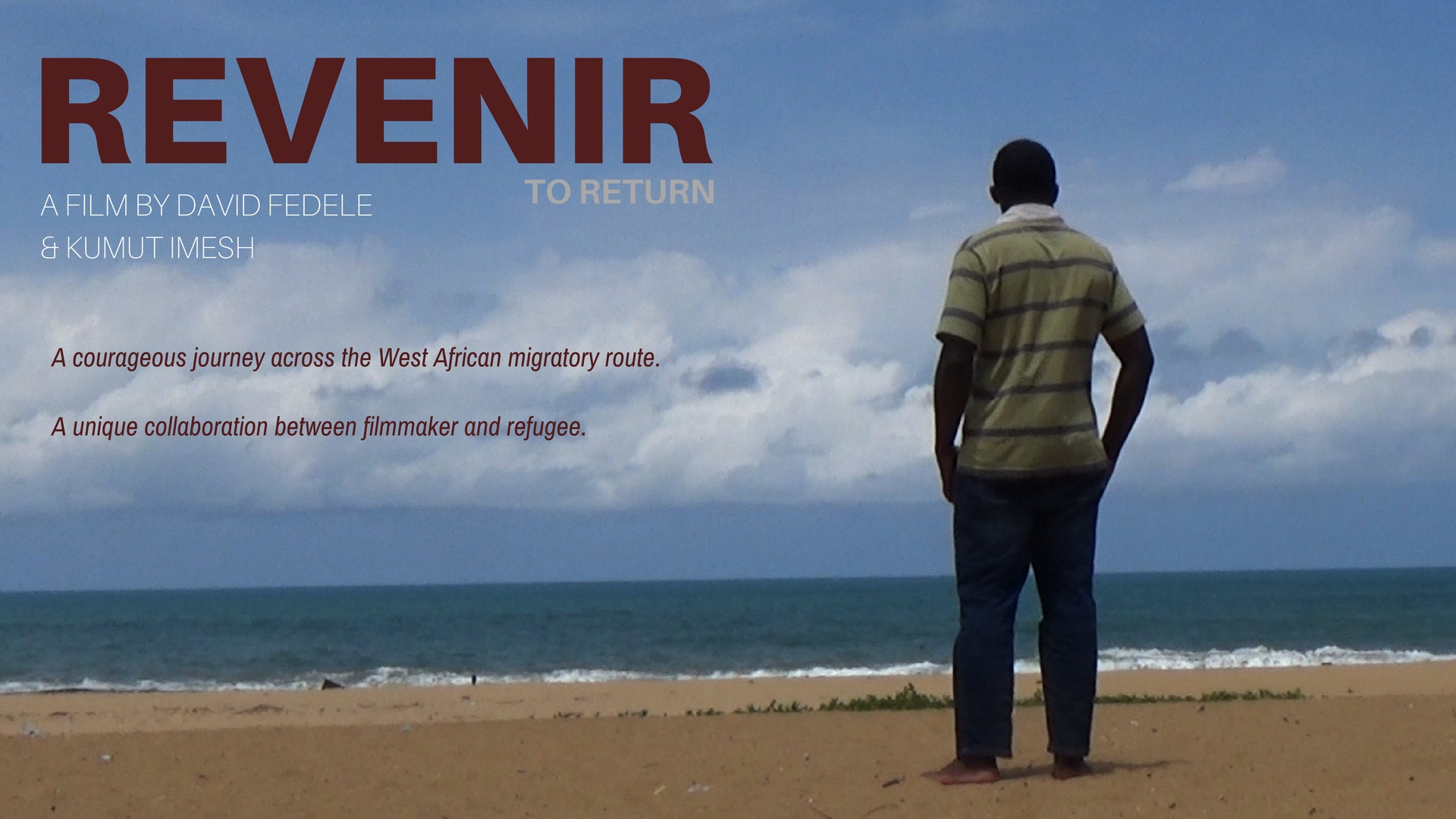
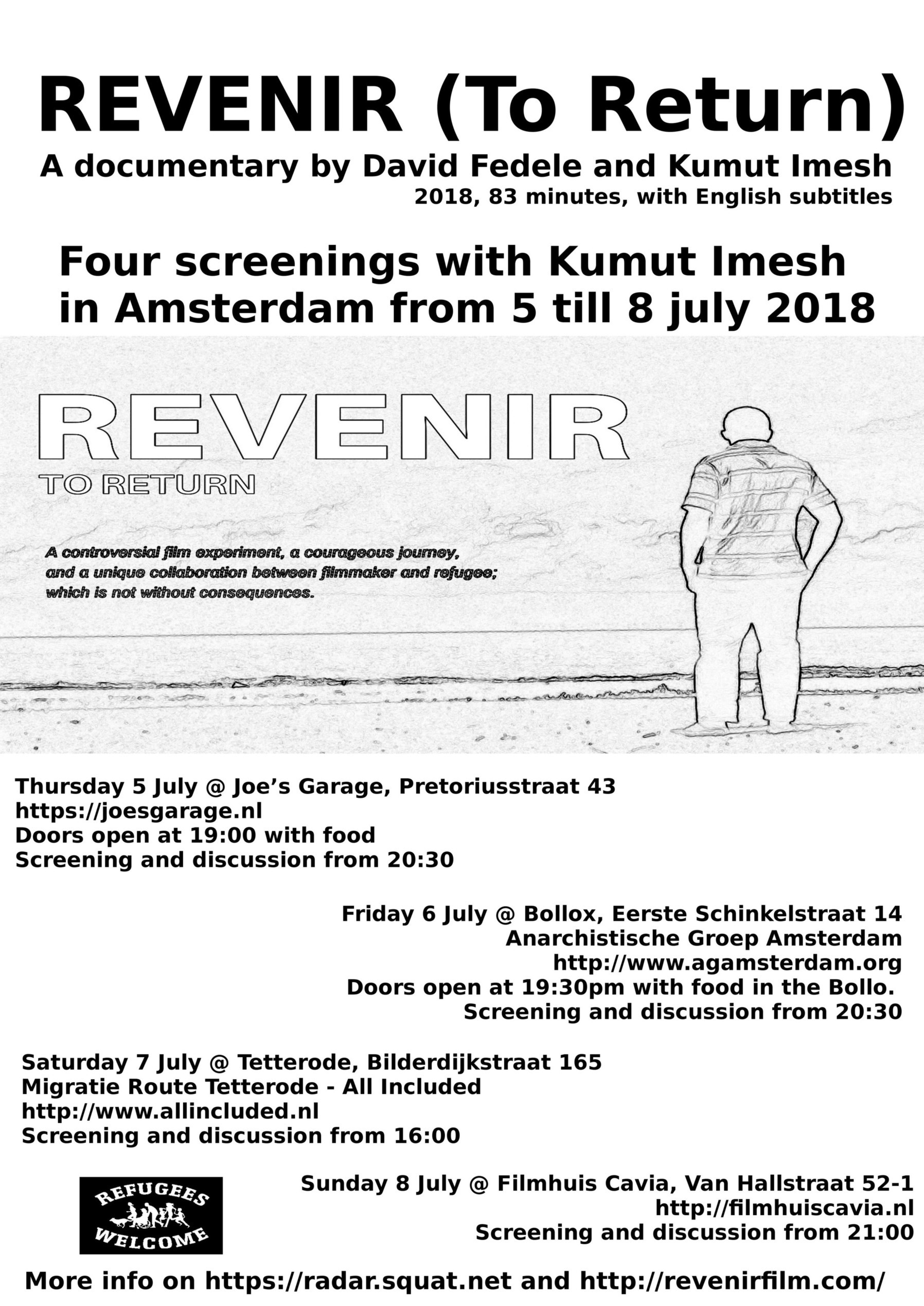
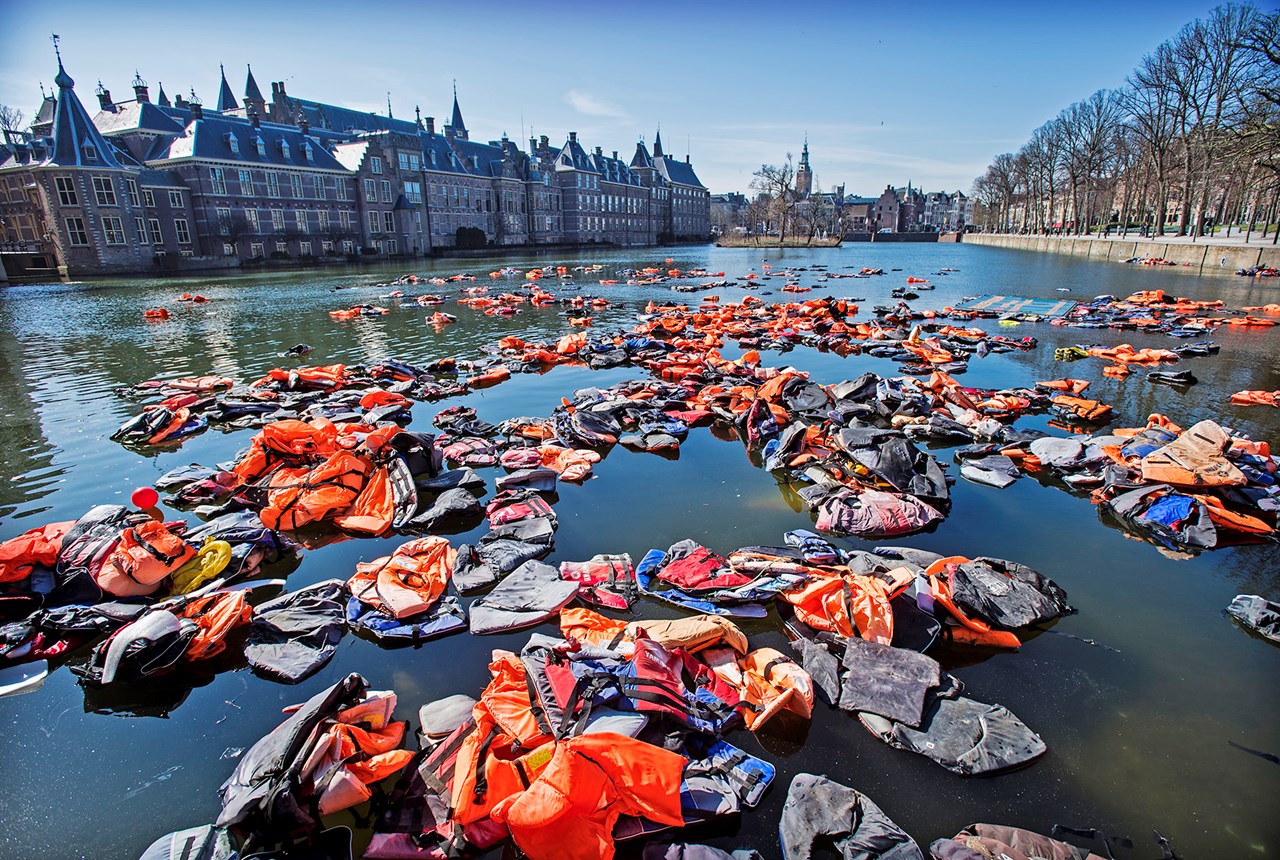
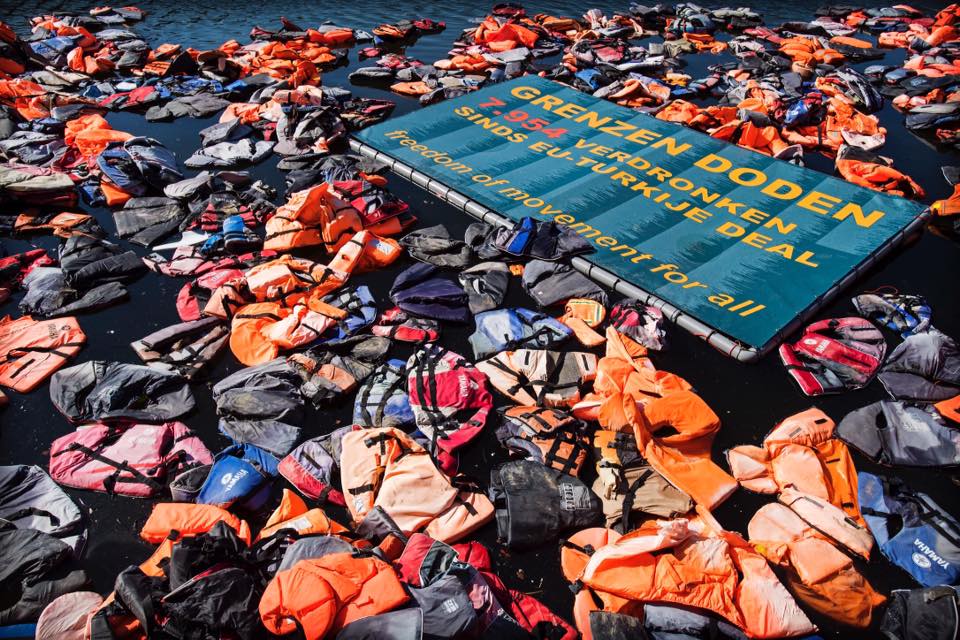
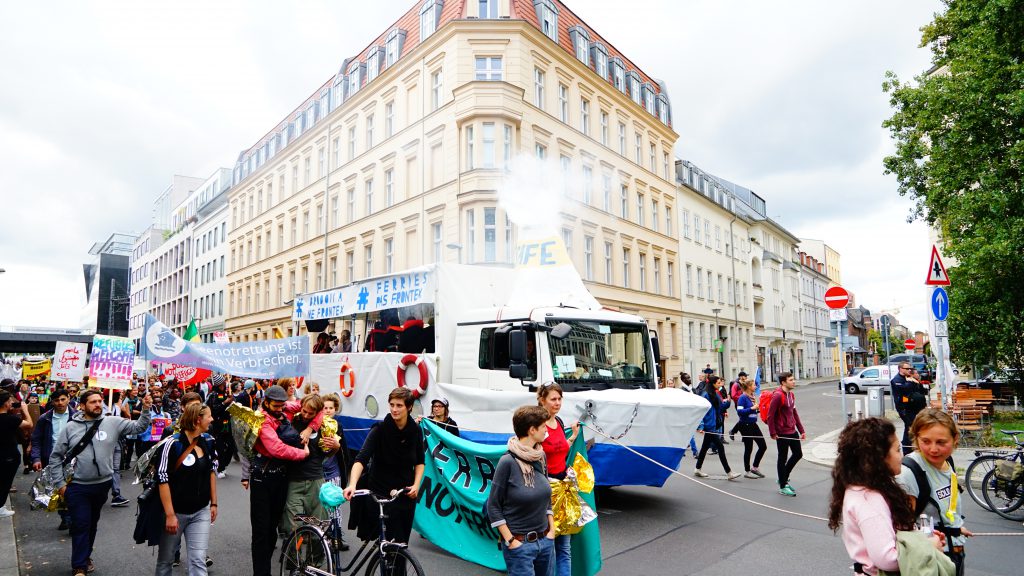
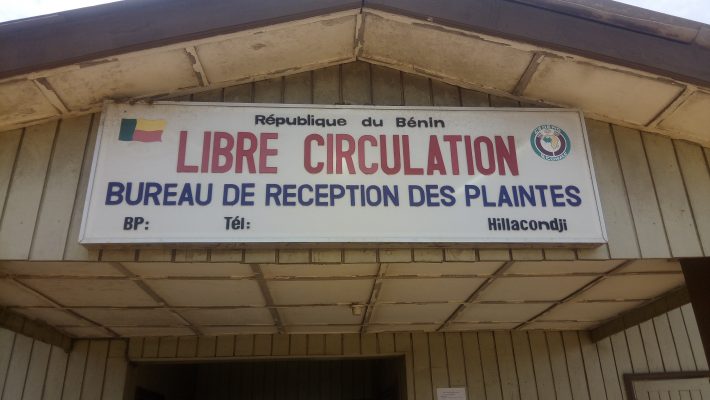 Border Togo-Benin
Border Togo-Benin